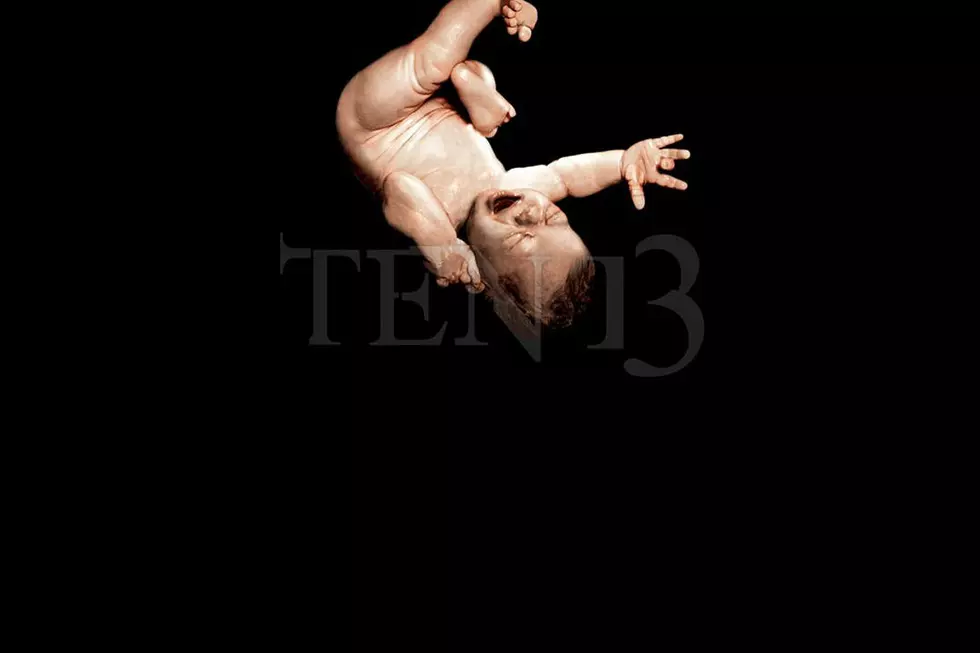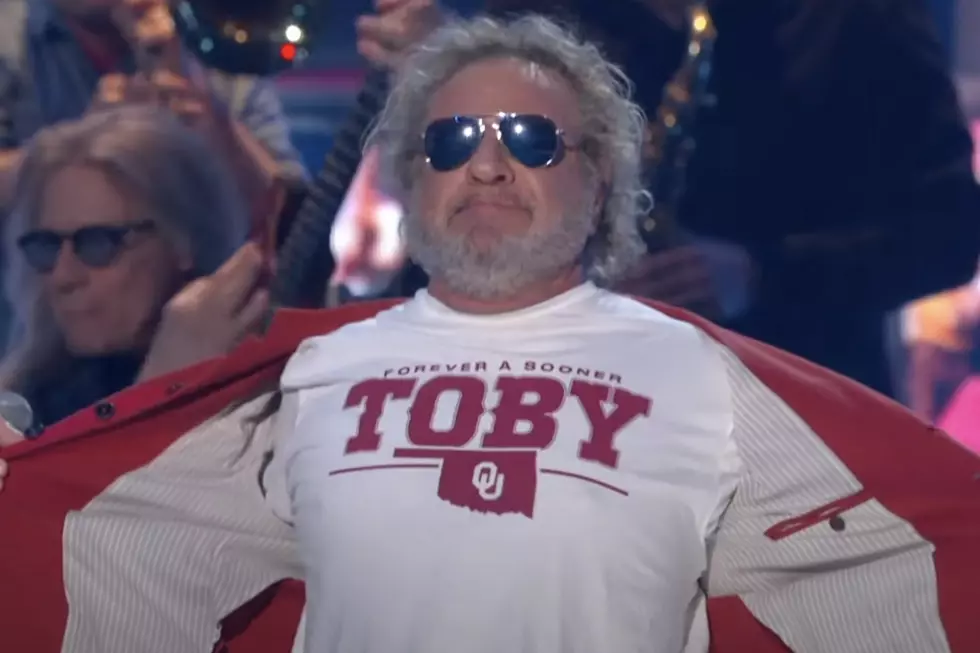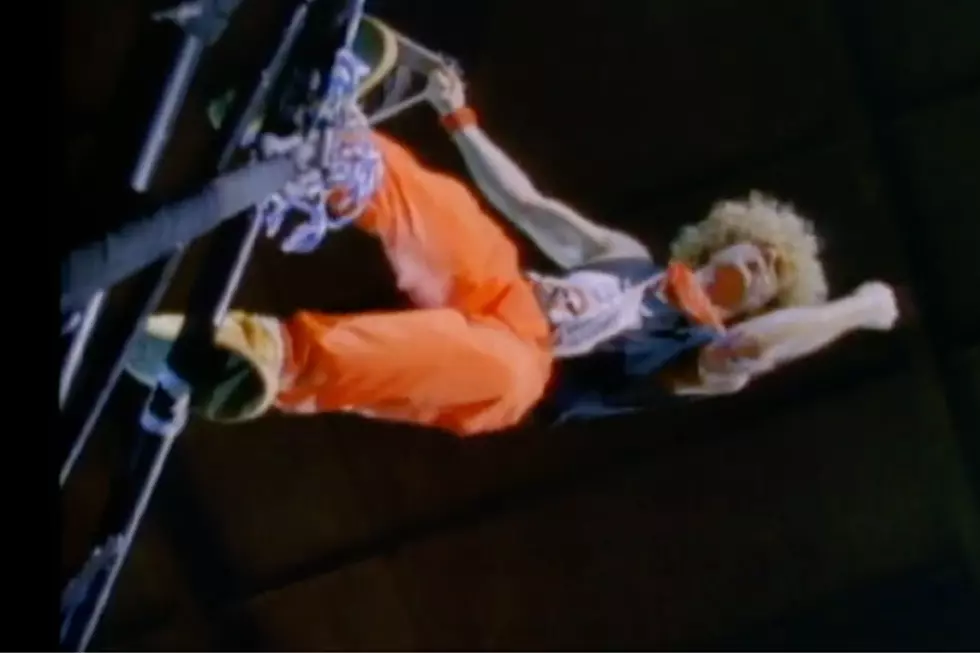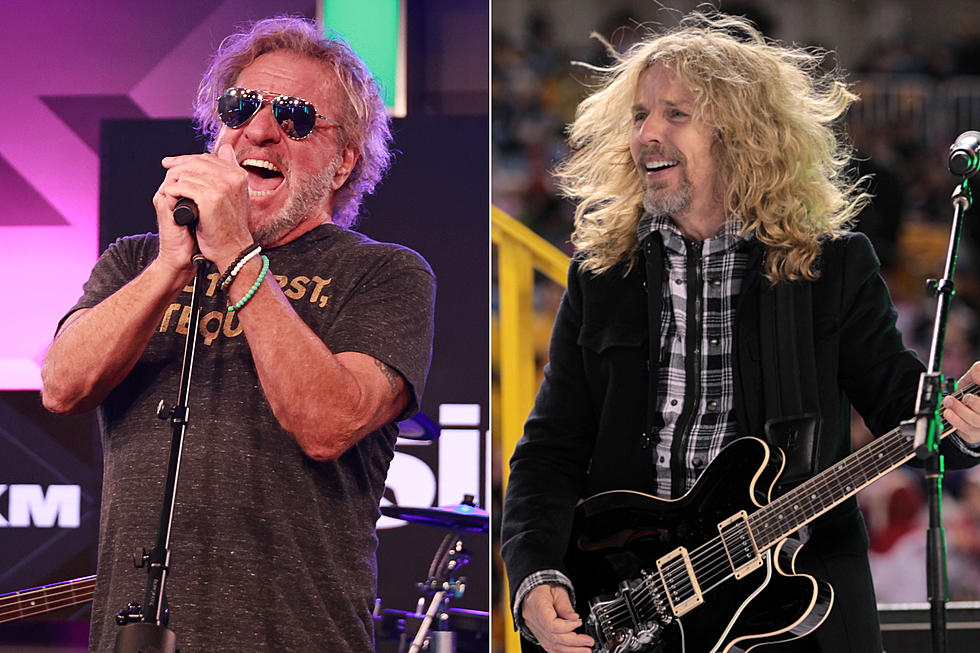
Why Sammy Hagar’s ‘Ten 13′ Was a ‘Cool Record’ From a ‘Bad Situation’
Sammy Hagar returned to his solo career with a vengeance in the late '90s, after a decade of working with Van Halen. Ten 13, issued on Oct. 24, 2000, marked his third release since leaving the band in 1996.
Arriving roughly a year and a half after 1999's predecessor Red Voodoo, Ten 13 announced the end of Hagar's association with MCA and found him on the roster of Beyond Music, a new indie imprint founded by veteran manager Allen Kovac. As Hagar told UCR's Matt Wardlaw, the Beyond deal represented an opportunity for him to move past "rock star" money and into the economic stratosphere reserved for label execs.
Hagar noted Kovac offered him a deal to make him "equal partners in the record business." "I figured I’d been fucked out of twice as much money as I ever made, even though I made a lot of money," Hagar explained. "Every rock star has, right? So I thought, 'What an opportunity! This is great. I’m going to roll in with this guy.' He came down to Cabo with his president of the company and they told me what they were going to do, and how cool this was going to be and all of this stuff. So, I really was excited about that record, and I was very motivated to make kind of an adventurous record and step out a little bit."
Aside from the added motivation that came from being flush with cash, Hagar noted he was feeling particularly "brave" when he started working on Ten 13, having settled into a groove with his band the Waboritas after touring behind Red Voodoo. "I said, 'We can do anything we want.' You know, nobody’s going to tell us what to do," Hagar recalled. "I’m not worried about it — I’m partners with the record label now and I felt like [with] the Wabos, let’s go out and be real adventurous with our music."
To that end, he ensconced himself in his home studio with keyboard player Jesse Harms. "I did it all in my basement at my house and we did it basically with ourselves," said Hagar, describing Harms as "a very smart guy with keyboards and programming and all of that" who "learned Pro Tools like boom." The result was an album that Hagar and the band basically home brewed: "I hired a few professionals to come over and help us every now and then, but really, we did that record ourselves, you know, everything on there. It was pretty amazing."
Even with his own studio and a stake in the label, Hagar wasn't immune from the pressures of the marketplace. Eager to score a hit for his new partners, he agreed to a writing session with a young musician named James Michael — later the vocalist for Sixx:A.M. — that produced the Ten 13 track "A Little Bit More." "I just thought that song was soulful. I mean, that seems like it could have been a hit," he reflected, laughing. "Nowadays, it’s pretty hard to have a hit. Looking back at that record, it might have been my last shot at having a fucking hit record in the record industry, you know, as a classic rocker."
Listen to 'A Little Bit More'
Hagar's mandate wasn't all about hits. Reflecting the bravery he said he felt while writing the record, Hagar also made room for more atypical cuts like "Serious Juju," which he composed to offer a sort of reverse perspective on the alcohol-fueled, hard-partying lifestyle with which he'd become increasingly identified since leaving Van Halen. A No. 10 rock hit, "Juju" ended up becoming Ten 13's most successful single. "I remember writing that one the day after my birthday that year in Cabo. I woke up on Oct. 14th and I wrote that song, because it’s exactly the way I felt," he laughed. "I was fucked! I love that song because of that."
With "Juju" at No. 10 and the follow-up single, "Let Sally Drive," going to No. 16, Hagar had a pretty solid hit on his hands with Ten 13, which peaked at No. 53 on Billboard's Top 200 Albums chart. Still, like a lot of artists who break free from the majors and enter the indie ranks, he soon discovered he was dealing with far fewer promotional resources than he'd been accustomed to commanding.
"I thought we made a really cool record. Like, it was pretty deep and personal and a little bit edgy. Then when it came out, I realized that this little independent label didn’t really have enough money to really promote it and make videos and stuff," Hagar recalled. "It came time to make videos and the guy is going, 'Oh, well you’ve got more money than I’ve got,' and I’m going, 'Wait a minute! I’m not going to pay for this stuff!' So, we got in kind of a bad situation and the record didn’t do as well as I thought it should have. You know, you sit there in hindsight going, 'I’d rather have gotten fucked out of half of my money by a big record company that would have promoted the shit out of it.'"
If it didn't impact the charts with as much force as he might have liked, Ten 13 was still a sizable hit with Hagar's fans, particularly those who turned out for his live shows. Hagar told UCR that the leadoff track, "Shaka Doobie," ended up becoming "like the theme song" for concerts at his Cabo Wabo Cantina.
"You know, I used to have to open with it, because anything you open with goes over. So, I wanted to play it, because it’s so much fun to play that song, and so we used to try to open with it when we were on tour," Hagar said. "In Cabo? Man, when things were dragging, we’d look at each other, I’d give ‘em the nod and you know what we’re going to play right now? This song’s gonna pick it up."
Ultimately, Ten 13 added a new milestone to Hagar's career by serving as a gateway into his full-fledged entry to the indie ranks. After ending the deal with Beyond, Hagar went completely on his own for the follow-up, 2002's Not 4 Sale, which he released on his Cabo Wabo Music imprint.
See Sammy Hagar and Other Rockers in the Top 100 Albums of the '80s
More From Ultimate Classic Rock









